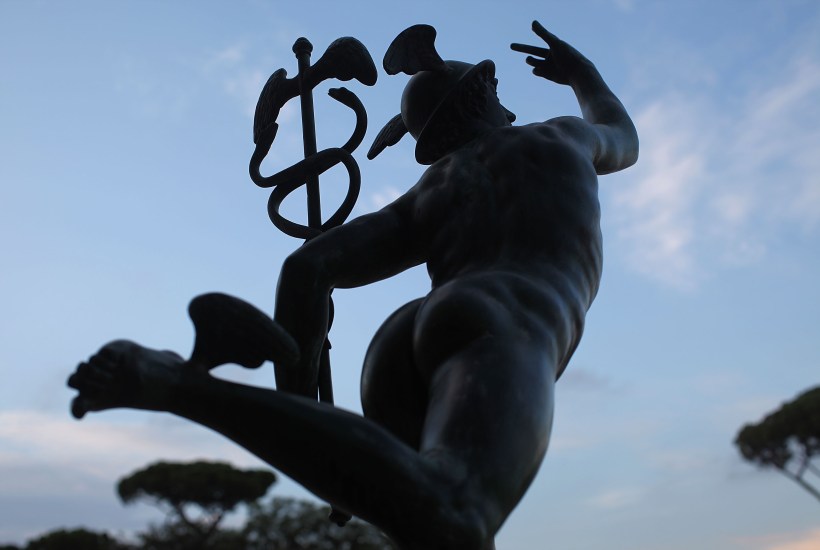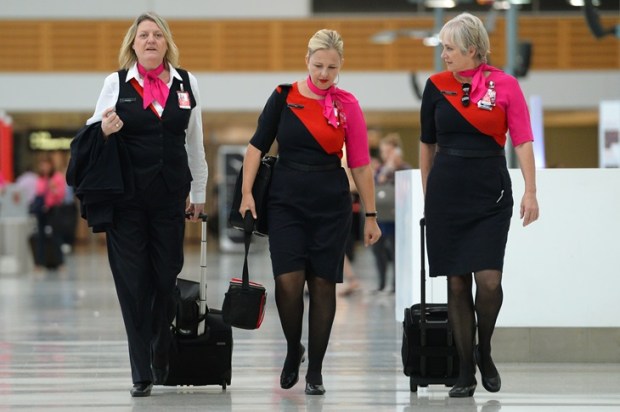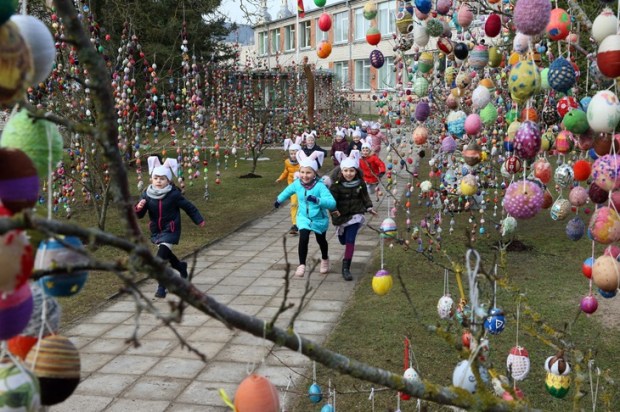The debate grinds on. Last week Australian National University Vice-Chancellor Brian Schmidt, an astrophysicist who probably never imagined things could get so hot on this planet, was hauled before the camera to tell viewers why his ANU chose to cease negotiations for the proposed Ramsay Centre’s History of Western Civilisation.
Looking like a particularly nervous ‘roo caught in the headlights, Schmidt cited ‘academic autonomy’ but never actually defined what that meant. Most viewers took it to mean that the NTEU didn’t like the idea, so it was off the table for discussion.
On Saturday RN’s Geraldine Doogue invited two academics, Professor Duncan Ivison, Deputy Vice-Chancellor Research and Professor of Political Philosophy at Sydney University and Jeannie Rea – “an academic for many years” – from the National Tertiary Education Union to inform listeners of their objections to the Ramsay proposal.
“All universities have to pay attention to any gift” intoned Ivison, while Rea chipped in “I think …where there’s a passionate donor and the key motives of academic freedom” and so it went on.
The real problem appears to be the name of the proposed Centre. Unlike the Confucius Centres (so nice, recognisable, practically rolls off the tongue) funded by generous Chinese donor, the History of Western Civilisation just has, well, such a lot of history to get through.
You see the problem, don’t you?
It’s the name. If one had to choose, whose name, among the thousands of men and women who contributed – sometimes giving their lives – to western civilisation, would one choose?
Western Civilisation is an Eton mess of history, politics, science and religion, upon which our notions of ‘western civilisation’ stand. Where to begin, there’s such a lot to get through.
Archimedes, “Give me a lever and I will move the world”? Marcus Aurelius, Roman emperor-philosopher, whose words still hold meaning today? Boudicca, British Celtic queen fighting what would today be undoubtedly called a war against a colonial power to free her country? Erasmus, Dutch Christian Humanist of the Renaissance, author of ‘In Praise of Folly’? Galileo Galilei hounded by the Inquisition for his heresy that the earth moved around the sun, “But, still, it moves”?. Thomas Aquinas? William of Ockham (the ABC’s science program ‘Ockham’s Razor’ pays homage to this thirteenth-century Franciscan friar)?
Jeanne D’Arcy, the teenager whose angelic voices demanded she throw the English invaders out of France? Martin Luther, who challenged the power of Rome by nailing his manifesto on the cathedral door? Don John of Austria, whose navy smashed the Turks at Lepanto?
Francis of Assisi, who preached the then-revolutionary idea that animals, as well as humans, should be treated with kindness? Linnaeus, Swedish botanist whose work that science still builds on. Michael Faraday, whose name the British Institute of Engineers carries? Florence Nightingale, who raised the profession of nursing into respectability and courage? That whole remarkable band of scientist-explorers that arrived on a rebuilt coal-carrier called Endeavour to a strange new continent full of never-before-seen flora and fauna?
‘Western civilisation’ was carried, along with the ideas of the Enlightenment, into the New World. Think Abraham Lincoln, “Fourscore and seven years ago our fathers brought forth on this continent, a new nation, conceived in Liberty and dedicated to the proposition that all men are created equal’, echoed two centuries later by Martin Luther King, “I have a dream”.
Bertolt Brecht and Gunther Grass, writers who lived through one of the most savage episodes of modern western history and somehow managed to hang onto their humanity.
Philosophers, scientists, statesmen, physicians, writers, men and women who pushed the boundaries of western knowledge and science and, in almost every case, shared it with the world. Just so many of them. So, perhaps it’s really just a problem with the name that upsets the NTEU. Western Civilisation. Probably links with Western Religion. Can’t have students dipping into any ideas, might start asking questions. Thinking for themselves.
So, just keep repeating the line about ‘academic autonomy’.
Brian Schmidt, you do have a problem.
Got something to add? Join the discussion and comment below.
Got something to add? Join the discussion and comment below.
Get 10 issues for just $10
Subscribe to The Spectator Australia today for the next 10 magazine issues, plus full online access, for just $10.


























Comments
Don't miss out
Join the conversation with other Spectator Australia readers. Subscribe to leave a comment.
SUBSCRIBEAlready a subscriber? Log in